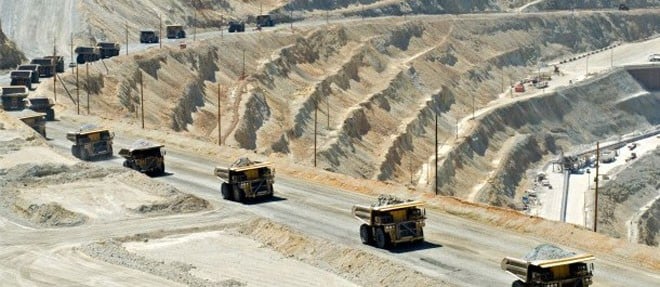
The question is how to attract foreign companies for exploration of natural resources?

Most of Pakistan’s natural resources are lying unexplored due to lack of capital-intensive technology and expertise. There are deposits that can be extracted with the help of foreign companies but the overall security situation in the country keeps them away in most of the cases.
Besides, on many occasions, the incentives offered to prospective foreign investors and the terms of the agreements, or the demands put forward by foreign companies were not acceptable to the parties involved.
Local companies are mostly mining minerals which are available in large quantities and do not need advanced technology. Minerals which are extracted in huge quantities include gypsum, rock salt, sandstone, marble coal and so on.
At the moment, foreign investment in exploration of minerals is limited. The Saindak Project in Balochistan is one such example whereas the Riko Deq project has become somewhat controversial.
The oil and gas sectors have, however, attracted foreign investment and there are several exploration companies which are working in joint venture with Pakistani exploration companies and the government. These companies enter into carefully drafted contractual agreements and try to adhere to these. As such ventures involve huge investments, the concerns about compliance by all partners are high and the availability of relevant forums for dispute resolution is vital.
The discovery of huge copper, iron ore and gold deposits in Chiniot area of Punjab have brought these issues to the fore. In fact, it is not a new discovery. The latest news is about the estimated value, the depth at which the layers of these deposits are located and the prospects and viability of their extraction.
Once again, there is need for foreign investment and use of advanced technology to realise this dream. So, the question is how to attract foreign companies and ensure the due share of the country in its wealth.
"This time the contract will be awarded through competitive bidding and foreign investors will be asked to sell the explored products to the government at a mutually-agreed price," says Dr Samar Mubarakmand, Chairman, Board of Directors, Punjab Mineral Development Corporation.
Mubarakmand tells TNS that "the practice in the past has been that companies were awarded leases in exchange for royalties as low as 2 per cent of the value of the product explored. Under such agreements, investors would get the right to take away the country’s wealth for endless periods."
This, he says, was exactly what happened in Riko Deq case where the government was offered a small royalty. A share was offered only in case the government contributed in the shape of equity. "This practice is ridiculous and shall be done away with," he says, adding, "the international consortium, which had done exploration in Riko Deq area, could not be given mining lease as the terms under which it wanted to work were not at all in the national interest. Besides, the contract had been given in under-the-table negotiations," he claims.
He adds that a Chinese company has offered to set up a steel mill at the site which is a good development. If this happens, the country will be able to finish the product and produce which is very high in demand in the country. Besides, he says, it will also create a lot of jobs for the locals. He says this offer will be considered after calling international tenders.
While Mubarkmand smells foul in the Riko Deq deal, there are sources who claim the government had a change of heart after coming to know about the value of copper and gold deposits in this area.
They claim several Pakistani and Chinese exploration companies were established within weeks after the cancellation of this agreement. However, the aggrieved party had the right to go for arbitration under local laws, litigation in local courts and approach the International Court of Justice (ICJ). There are reports that the Balochistan government and Riko Deq may go for an out-of-court settlement.
One major concern about foreign investors is that they do not share the exact value of the mineral resources. "But this is not the case with oil and gas sector and these products are consumed locally," says Amir Bilal, head of Corporate Social responsibility (CSR) at Mari Petroleum.
The contractual agreements, he says, vary from case to case as there are local partners and the government is also involved. Foreign investors do not carry out exploration activities single-handedly as the risks are high. The partners to the agreement try their best to fulfill their contractual obligations. He says the oil and gas exploration companies are bound to spend a particular percentage of their revenues on development of the concession areas where they are operating.
Syed Asad Haider, senior manager legal, at Pakistan Oilfields Limited (POL) tells TNS that parties to an agreement can go for agreement under arbitration act of 1940. However, in certain cases, foreign investors approach international forums if they have dispute with joint venture partners. He says there is a trend that aggrieved foreign investors directly file writ petitions if they have an issue with the government and avoid entering into a long arbitration process.
While there are formal forums in place, sources say diplomatic missions of the countries to which the investors belong also play a major role in getting the disputes settled through backdoor channels.